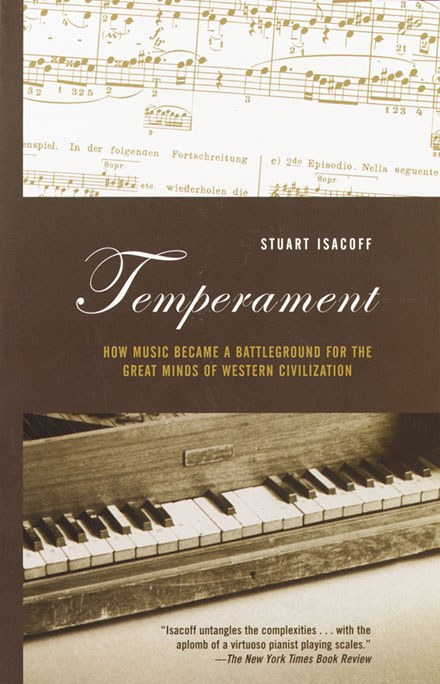
ALFRED A. Knopf, 2001 (hardcover, 272 pages)
Vintage, 2003 (paperback, 288 pages)
Temperament
How Music Became a Battleground for the Great Minds of Western Civilization
REVIEWS
"[Temperament's] most persuasive weapon is the unquenchable passion of its author… An immensely entertaining, original and informative book."
— The Economist
"Isacoff untangles the complexities of this issue with the aplomb of a virtuoso pianist playing scales. He makes an erudite and amiable companion."
— The New York Times Book Review
"Charming... a whirlwind tour of Western culture's big ideas."
— The Los Angeles Times
"[Isacoff] writes engagingly about abstract and often counterintuitive matters."
— The New Republic
"An astounding and accessible journey through the culture-defining narrative hidden in arcane music theory. Isacoff does a wondrous job…"
— The Onion
"If the world finds itself in need of a 21st Century equivalent of Sir Donald Francis Tovey, I nominate Isacoff for the job."
— The American Record Guide
"[Brings] together aspects of science, philosophy, history, poetry, religion and music in a compact yet compelling narrative."
— Library Journal
"Though the book is light sailing, the pleasure here is that it gives readers a glimpse of the oceanic depths of musical metaphors and mysteries still unsolved…"
— The Wilson Quarterly
"A sweeping history of medieval and Renaissance European intellectual achievement, in which the question of tuning assumes a speaking part."
— Time Out New York
"This lucid, humanist study is as much fun to read as a murder mystery."
— The San Jose Mercury News
